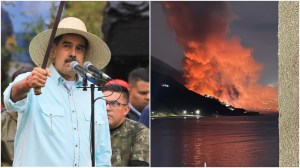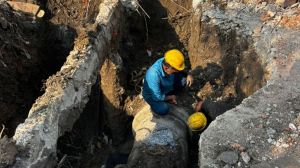Judicial panel to begin hearing soon
AURANGABAD, DECEMBER 16: The judicial commission, led by retired high court judge Justice A D Mane, inquiring into the police lathi-charge...

AURANGABAD, DECEMBER 16: The judicial commission, led by retired high court judge Justice A D Mane, inquiring into the police lathi-charge incident here on December 6 will begin its hearing by this month-end.
One person was killed while over 80 persons including a dozen journalists were injured in the lathi-charge within the police headquarters premises. While the majority were injured when the police resorted to lathi-charge on a mob protesting the demolition of Babri Masjid, eight journalists were injured in a separate incident, sometime later, when they reached the police headquarters to pick up their injured colleagues from the headquarters.
Addressing a press conference on Thursday, Divisional Commissioner Prabhakar Kurse denied there was any neglect on the part of the local administration in providing help to the commission.
8220;We received the notification on setting up of the commission on December 10. Thereafter, we requested the Aurangabad bench of the Bombay High Court here to make an officeavailable for the commission. However, the court officials expressed their inability to do so. Thereafter, a special office was created for the commission in the collectorate building,8221; he said.
Kurse said Additional Collector Capt. Ramesh Mahajan has taken additional charge as the commission8217;s secretary. Though Mahajan is due to retire at the end of the month, a special plea has been made to the State Government to let him continue in the secretary8217;s office thereafter, Kurse said.
The commission, which has been asked to submit its report within two months of its setting up December 20, has been given seven terms of references:
Reference seven pertains to the attack on journalists.
1 Background of the incident, chain of events leading to use of force and lathi-charge by police and whether police had taken adequate precaution to deal with the agitation.
2 Whether the said agitation and subsequent events were pre-planned or whether any individual or group of individuals or organisation or anincident was responsible for the agitation and the consequent police lathi-charge.
3 Whether the steps taken by the police to keep situation under control and restore peace were adequate and in accordance with the established procedure and whether the police lathi-charge was essential and to the extent warranted by the situation or whether it was more than required.
- 01
- 02
- 03
- 04
- 05































